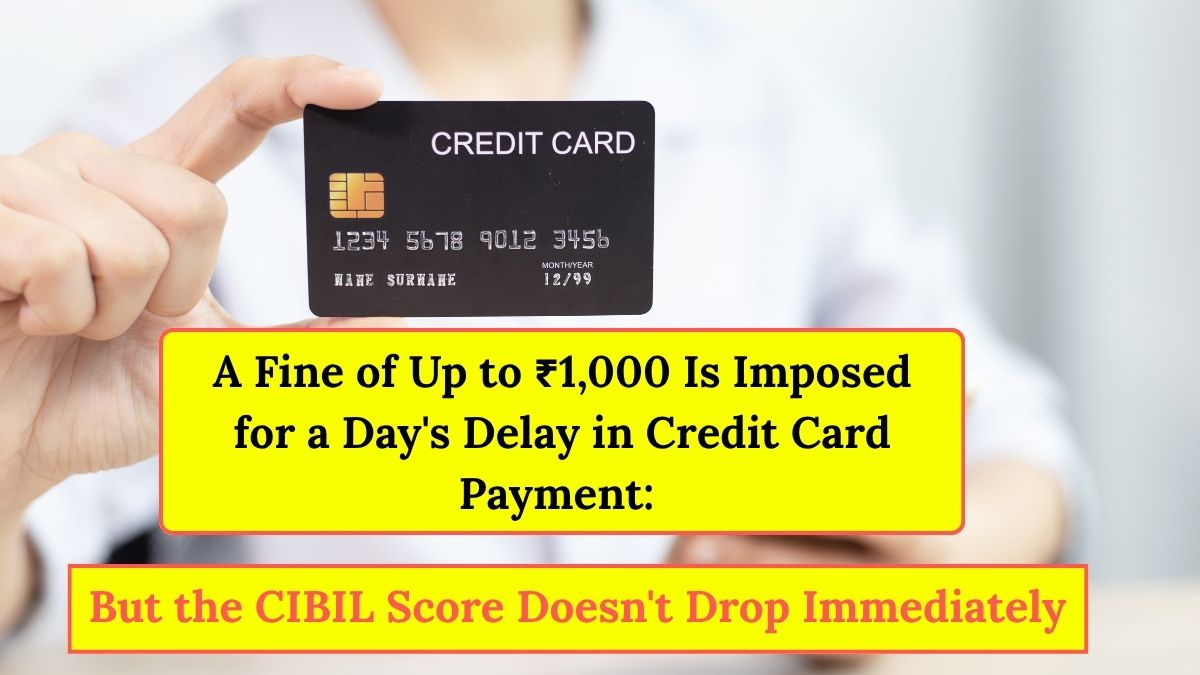Have you ever missed your credit card payment by just one day and panicked thinking, “Is my credit score ruined now?” You’re not alone.
We all get caught up in life—sometimes a salary delay, a weekend holiday, or simply forgetting the due date can push our payment by a day or two. The fear of seeing your CIBIL score drop overnight can be stressful. But here’s the truth — a one-day delay doesn’t destroy your credit score immediately. Let’s understand what actually happens behind the scenes.
One-Day Delay Doesn’t Hurt Your Credit Score Immediately
Most banks and credit unions don’t report payments delayed by less than 30 days to credit bureaus like CIBIL or Experian.
In fact, almost every lender gives you a grace period of 3 to 7 days after your due date. So, if you make the payment within this short window, your account usually isn’t marked as “late.”
That means, if you miss your payment by just one day, your credit score remains safe — no negative impact yet.
Repeated Delays? That’s Where Trouble Starts
Experts say that while a single one-day delay isn’t reported, frequent short delays can hurt you over time.
Here’s why — banks have their internal tracking systems. Even if they don’t send a report to CIBIL, they can still flag your account internally as having “poor payment behavior.”
So if you’re often late by a day or two, lenders may start seeing you as less disciplined with credit.
That can come back to hurt you when you apply for a new loan, car finance, or even another credit card.
What Happens If You Delay by More Than 30 Days?
That’s when the real problem begins.
Once your payment crosses 30 days past the due date, the bank officially reports it to the credit bureau.
This will bring down your CIBIL score, sometimes by 50–100 points, depending on your credit history.
The longer you delay, the worse it gets — 60 days, 90 days, or more can make your profile look highly risky to future lenders.
Late Payment Penalties: How Much Can You Be Charged?
Even a short delay can cost you money. Most banks charge late fees between ₹100 and ₹1,000, depending on your outstanding amount.
For example:
- If your bill is ₹5,000–₹10,000, you might be charged ₹500.
- For higher bills above ₹25,000, the penalty could go up to ₹1,000 or more.
- Besides, interest starts building daily on the unpaid amount until you clear it. So, the sooner you pay, the better.
Smart Ways to Protect Your Credit Score
Want to avoid late fees and keep your credit score shining above 750? Try these small but powerful steps:
- Use only 30% of your credit limit
– If your limit is ₹1,00,000, try not to spend more than ₹30,000. High utilization can pull your score down even if you pay on time. - Apply for a credit limit increase
– If your income is steady and your payment record is clean, ask your bank to raise your limit. It improves your credit utilization ratio and your score. - Split your expenses across multiple cards
– Instead of maxing out one card, distribute your regular bills across 2–3 cards. This keeps utilization balanced. - Set payment reminders or auto-pay
– Use your bank’s app, SMS alerts, or Google Calendar. A simple reminder can save you hundreds in fees — and protect your score.
What Exactly Is a CIBIL Score?
Your CIBIL score is a three-digit number ranging from 300 to 900 that reflects your credit behavior.
It shows how responsibly you handle loans, EMIs, and credit card bills.
A score above 750 is considered good — it signals to banks and NBFCs that you’re a reliable borrower.
The higher your score, the better your chances of getting instant approvals and lower interest rates.

